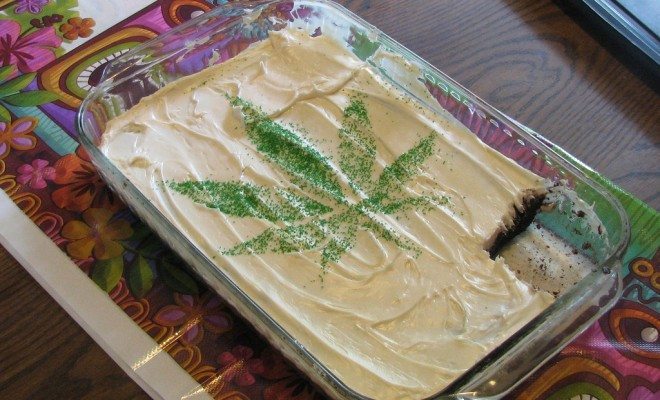 Image courtesy of [animakitty via Flickr]
Image courtesy of [animakitty via Flickr]
Cannabis in America
Weed Trend Grows: Canada Legalizes Medical Edibles
The Supreme Court of Canada has just ruled that the users of marijuana for medical purposes now have the right to bake the drugs in cookies, take it in lozenge form or as tropical oils in addition to smoking it. The unanimous ruling against the federal government expands the definition of medical marijuana beyond the “dried” form, and speaks volumes about the changes happening in the marijuana industry.
The Court found that the current restriction to dried marijuana violates the right to liberty and security “in a manner that is arbitrary and hence is not in accord with the principles of fundamental justice.” Restricting medical access in Canada to marijuana in a dried form has now been declared “null and void.” That renders sections four and five of the Controlled Drug and Substances Act, which prohibits possession and trafficking of non-dried forms of cannabis, unenforceable.
This decision supports earlier rulings by lower Courts in British Columbia that said they went against a person’s right to consume medical marijuana in the form they choose.
Medical marijuana patients don’t always want to expose themselves to the effects of smoking the drugs. Inhaling marijuana could present health risks, and is said to be less effective for some conditions that administer cannabis derivatives. With inhalation being a large issue, the smoking process is said to irritate the lungs, which is why smokers are more likely to have an ongoing cough or other health problems like chest colds and lung infections.
A 2011 systematic review of the research concluded that long-term marijuana smoking is associated with an increased risk of some respiratory problems, including an increase in cough, sputum production, airway inflammation, and wheezing–similar to that of tobacco smoking.
Some medical marijuana users wanted to avoid those side effects. But other methods like brewing marijuana leaves in tea or baking weed into brownies left patients vulnerable to be charged with possession and trafficking under the law.
“This is monumental,” said David Posner, CEO of Nutritional High, a Canadian company that has been testing marijuana-infused candy and drinks for sale in the United States later this year. “Another market the size of California just opened up for our products.”
So what does this mean for the U.S. exactly? Four states–Washington, Colorado, Oregon, and Alaska, as well as Washington D.C.–have legalized marijuana, while a total of 14 states have decriminalized certain amounts of possession. Legal marijuana is said to be the fastest-growing industry in the U.S. According to ArcView, over the next five years, the marijuana industry is expected to continue to grow. They are predicting that 14 more states will legalize recreational marijuana and two more will legalize medical marijuana. At least ten states are already considering legalizing recreational marijuana in just the next two years through ballot measures or state legislatures.
In that context, Canada extending its medical marijuana market, and the U.S.’s current growing market promise continued growth. Non-traditional ways to consume marijuana will continue to rise–this week’s decision was just the beginning.








Comments